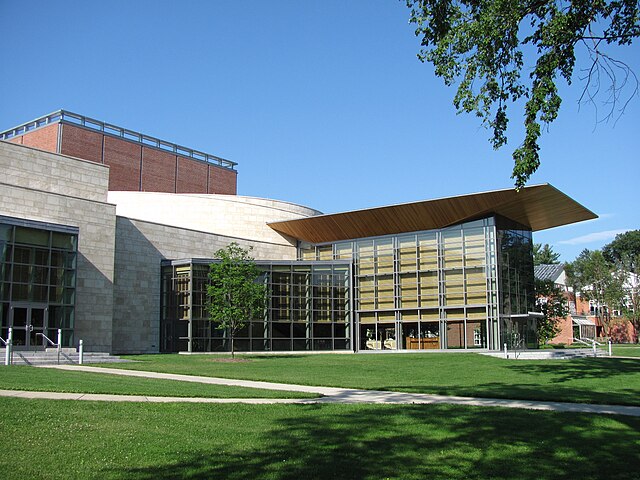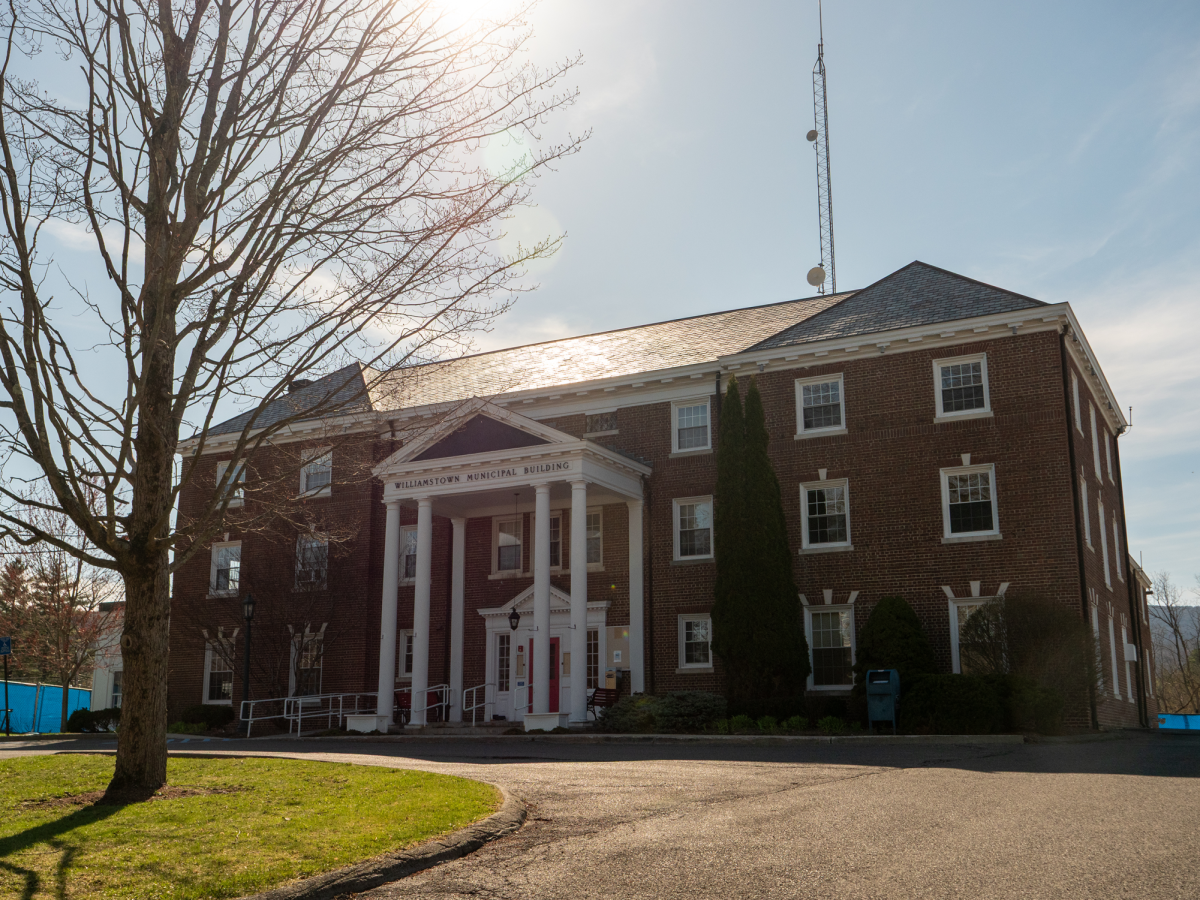
The Homelands PowWow, hosted this weekend at the Darrow School in New Lebanon, N.Y., marked the first powwow hosted by members of the Stockbridge-Munsee Mohican Tribe on their ancestral lands since their forceful expulsion in the late 18th century.
Saturday’s main event was Grand Entry, a procession of community leaders, dancers, and veterans of any service into a central circle where the majority of the powwow’s events took place. Directed by emcees from the Stockbridge-Munsee Reservation in Wisconsin and accompanied by Rez Dogs, a drumming group from Indian Island, Maine, participants processed into the circle, marking the high point of the day.
According to its website, this year’s Homelands PowWow was intentionally small so as to foster relationships and community that will grow the event into a sustained, annual tradition that celebrates the Stockbridge-Munsee Mohicans. “Our mission is to honor and reconnect the Stockbridge-Munsee Mohican people with their ancestral lands,” the website reads. “Through the annual organization of this PowWow, we raise funds to support travel and lodging for tribal members who wish to return to these sacred homelands. Rooted in tradition, community, and cultural resilience, our work helps ensure that the connection between the Mohican people and their lands endures for generations to come.”
Shawn Stevens, who is the chairman of the Homelands PowWow Committee and a registered member of the Stockbridge-Munsee Band of Mohicans, traveled from Wisconsin to put on the event. Stevens spoke with the Record about the inspiration for the powwow. “My older sister Ginger met with another friend of ours, and they said, ‘Hey, it would be great to have a powwow,’ not thinking much about it,” he said. “But, they were very serious about it, and we talked to a lot of local people, and people back home … we breathed it into life by mentioning it, and it just manifested.”
The event drew several hundred attendees, far exceeding its organizers’ expectations. “It’s amazing,” Stevens said. “We weren’t sure how well this was going to turn out … but it turned out much better than we thought. It had a life of its own.”
Stevens carried the Stockbridge-Munsee Mohican flag during part of Grand Entry. He attested to the gathering’s importance as both a community and reclamation event. “It’s about bringing people out,” he said. “It’s about culture. It’s about reclaiming our right in this world as human beings, as family to all.”
Stevens was one of many attendees who made the trip out from Wisconsin, where the Stockbridge-Munsee Reservation is located. During Grand Entry, Stevens was joined by Andre Strongbearheart, a citizen of the Nipmuc people, who carried the Nipmuc flag.
Strongbearheart is the creative director of No Loose Braids, a “Nipmuc-led organization working to bring Eastern Woodland Tribal communities together in unity through cultural revitalization of traditional practices to revive community and culture,” according to its website.
No Loose Braids was represented by Strongbearheart at a booth at this weekend’s event. His booth included items from a Nipmuc home site, including a dugout canoe and racks for drying hides and making nets. He said that although the site is educational, it is not meant to be museum-like. “This is not a presentation,” he told the Record. “It shows a relationship to the land and demonstrates our ways of living and being.”
Strongbearheart traveled to the powwow from Ashfield, Mass., to participate and support the representatives of the Stockbridge-Munsee community. “We have lived alongside them for thousands of years,” he said. “We are their sister tribe. It’s important for us to be present to welcome them home.”
Many of the other participants in the weekend’s powwow came from even further afield.
Joe Lonjose, who is Zuni Pueblo, came to the event as a vendor, selling jewelry and puzzles made by Native artists. Lonjose works as a nurse in Pittsburgh, but he made the trek to New Lebanon to represent his business, He:Du:Na’s Native Goods. Jewelry is a family business for Lonjose, who grew up selling traditional Zuni inlay jewelry with his father on what is known as the “the powwow circuit.”
Lonjose said that technology has made planning where to sell his jewelry easier. He uses PowWows.com, a website where organizers can post notices about powwows across the United States and Canada, to find where to go.
A few stalls down from Lonjose, Joe Messina of Ballston Lake, N.Y., and his young godson sold fire-roasted corn. “It’s cooked over the same kind of fire our ancestors used, with some added spices for the modern palette,” said Messina, who has Lenape ancestry.
At his booth, Messina displayed a banner with a quote from Chief Si’ahl, a leader of the Duwamish and Suquamish peoples and the namesake of the city of Seattle. “The earth does not belong to man; man belongs to the earth,” the banner read.
The theme of relationships between humans and nature carried through in the lead-up to Grand Entry. Willow Greene, a traditional storyteller who is Abenaki, told a story of the creation of the Adirondack and Green Mountains.
Greene, who is the fourth generation of her family to live on her homestead in Templeton, Mass., makes a living selling Native American arts and crafts, mostly at powwows in the Northeast. For her, the gatherings have built connections that endure decades. “This is where I’ve made most of my living and spent most of my life,” she said. “You can go for years not seeing somebody, and when you happen to bump into them at the next powwow, it’s like not a day has gone by.”
For Greene, though, the community she has found all of her life on the circuit and in Native communities differs starkly from her life outside of them. To supplement the income from her business, she took up a part-time job at Cumberland Farms, where she said she faced racist harassment. “For me it was a culture shock,” she said. “I was called the ‘Indian princess.’ I heard a mother screaming at her child that if they didn’t behave she’d ‘sell them to a wild bunch of Indians.’”
Greene said that even while that sort of rhetoric comes further into the fold, and as people in power re-embrace the xenophobic vitriol that has long defined America’s relationship with Native populations, this weekend’s event was a beacon of light.
“I see this event as hope,” she said. And that hope, she added, will continue for generations, long after she is gone.
Greene said her granddaughter has agreed to take over the business after she passes away, something that she has begun to prepare for.
“A couple years ago I got sick,” Greene said. “This illness is going to end my life. My granddaughter … has agreed to take over the business. This thing is multi-generational, and I can see it going on forever.”
“It’s important to pass on what you know and the culture,” she continued. “[My granddaughter has] promised to keep the business going. After I croak, I’ll be around forever.”
Correction: A previous version of this article incorrectly stated that the powwow was hosted by the Stockbridge-Munsee Mohican Tribe. The powwow was hosted by Homelands PowWow, which is a private organization that does not speak for the Tribal Council nor represent the Tribe officially. The article was updated on Oct. 9 at 2:30 p.m. to reflect this change.














